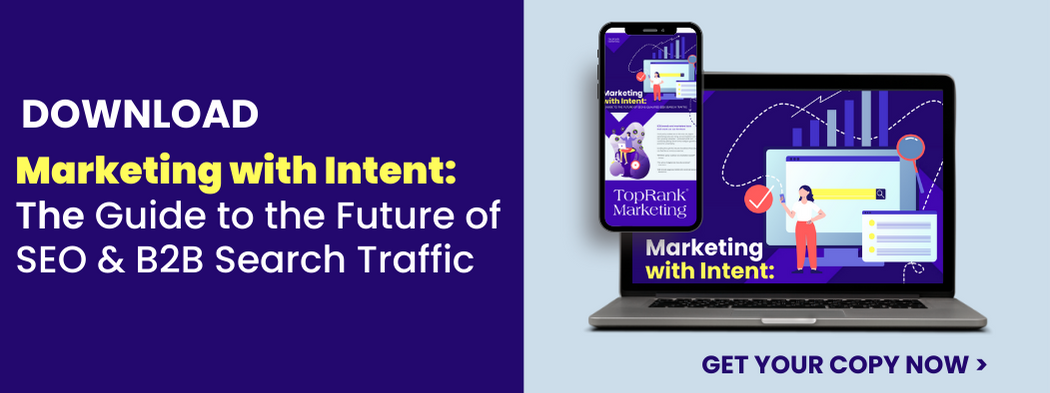Inspiration for how to be a better marketer can come from just about anywhere, including under the sea. Or should I say: Under The Sea, the best song from the 1989 Disney classic The Little Mermaid.
In the song, the crab Sebastian spends nearly three minutes singing to the mermaid Ariel about why she should not attempt to live on land. When we look at the song through a B2B marketing lens, it becomes a stark case study in common mistakes that any marketer should avoid.
There are four mistakes Sebastian makes in the course of this specific song that B2B marketers can learn a lesson from. Let’s take a look at each one and what they can teach us as marketers.
Mistake #1: He has the wrong message
Sebastian clearly did not consider his audience when preparing the message for this song. He centers his messaging around how staying under the sea will help her not get eaten by humans. The only problem is: humans don’t typically eat mermaids.
Instead, he may have considered a more practical message around how she would not be able to walk or breathe on land. While it’s true that Ariel eventually does get some spiffy human legs after trading her voice for them, messaging around the practical safety considerations earlier on in her decision making process may have resonated and caused her to reconsider.
The lesson for marketers: always make sure you understand your audience’s actual pain points. Don’t assume their problems are the same as your problems!
“Always make sure you understand your audience’s actual pain points. Don’t assume their problems are the same as your problems!” — Art Allen @punsultant Click To TweetMistake #2: He has the wrong messenger
I am not the first to make this point, but your dad’s coworker is probably the last person you’d listen to for advice on how to deal with the boy you like. Instead, Sebastian should have recruited someone Ariel would have been more likely to listen to. This is influencer marketing — or, in this case, maybe it’s finfluencer marketing.
Sebastian might have recruited Ariel’s good friend Flounder to deliver the “don’t try to go live on land” message. After all, Flounder also has an interest in keeping Ariel under the sea: he doesn’t want to lose his friend. Going with a more trustworthy source may very well have yielded better results.
The lesson for marketers: you (or your client) may not always be the best messenger. Consider an influencer marketing campaign to add credibility to your message.
“You (or your client) may not always be the best messenger. Consider an influencer marketing campaign to add credibility to your message.” — Art Allen @punsultant Click To TweetMistake #3: He doesn’t pivot
About two thirds of the way through the song, Flounder whispers in Ariel’s ear and they both leave. In the marketing world, we would call this real-time analytics: he can actually see his audience disengaging. But he’s too busy having fun with his song to notice.
The result of this is that he spends a full third of his campaign messaging to an audience that isn’t even there.
If he had noticed Ariel leaving, he could have pivoted. Whether changing up his message, his messenger, or some other aspect of his appeal, he shouldn’t have continued with the campaign as it was.
Lesson for marketers: pay attention to your analytics! If your audience isn’t responding to your campaign, dig into the data to figure out why and pivot accordingly.
“Pay attention to your analytics! If your audience isn’t responding to your campaign, dig into the data to figure out why and pivot accordingly.” — Art Allen @punsultant Click To TweetMistake #4: He doesn’t use generative AI
Yes, this one may seem a little unfair. But we’re halfway through 2023 here, and generative AI has matured and more than proven its value to marketers. There are no excuses for leaving generative AI out of your marketing toolbox — not even being a cartoon crab.
Sebastian might have used a generative AI tool like ChatGPT to brainstorm a list of concepts for how to present his argument. He also could have used a tool like Midjourney to create compelling visual aids to help tell his story.
Regardless of how he used it, the amount of help with ideation, concept revision, and content creation that generative AI tools offer very well may have provided him with what he needed to present a more compelling message.
Lesson for marketers: learn how to use generative AI tools. They are not a replacement for the hard work of making great marketing content, but they are invaluable for working more efficiently and effectively.
“Learn how to use generative AI tools. They are not a replacement for the hard work of making great marketing content, but they are invaluable for working more efficiently and effectively.” — Art Allen @punsultant Click To TweetDon’t Make a Big Mistake
The world of B2B marketing may not be quite as magical as life under the sea, but in both places it’s easy to make mistakes. But those mistakes aren’t inevitable, and putting in a little bit of thought before, during, and after any campaign can help make sure your clients have a happy ending.
Learn more about crafting great B2B content experiences with our new free guide, Marketing with Intent: The Future of SEO & B2B Search Traffic.




